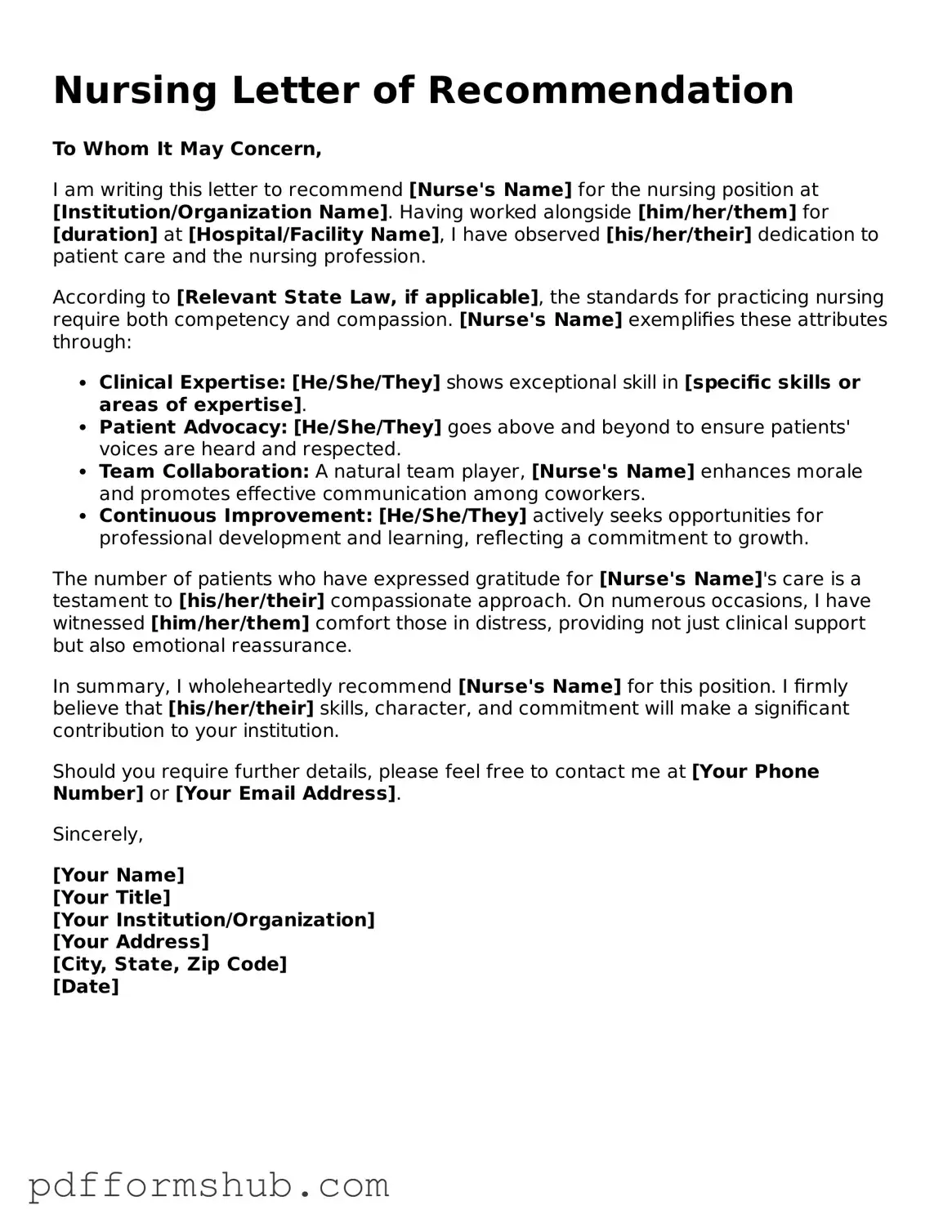Valid Nursing Letter of Recommendation Form
The Nursing Letter of Recommendation form is a crucial document that helps nursing students secure opportunities in their field. It provides a way for educators or employers to endorse the skills and character of a candidate. Completing this form can significantly enhance a nursing applicant's chances of success, so don't hesitate to fill it out by clicking the button below.
Customize Form

Valid Nursing Letter of Recommendation Form
Customize Form

Customize Form
or
Free PDF Form
Short deadline? Complete this form now
Complete Nursing Letter of Recommendation online without printing hassles.